China’s Anti-Cult Theme Park
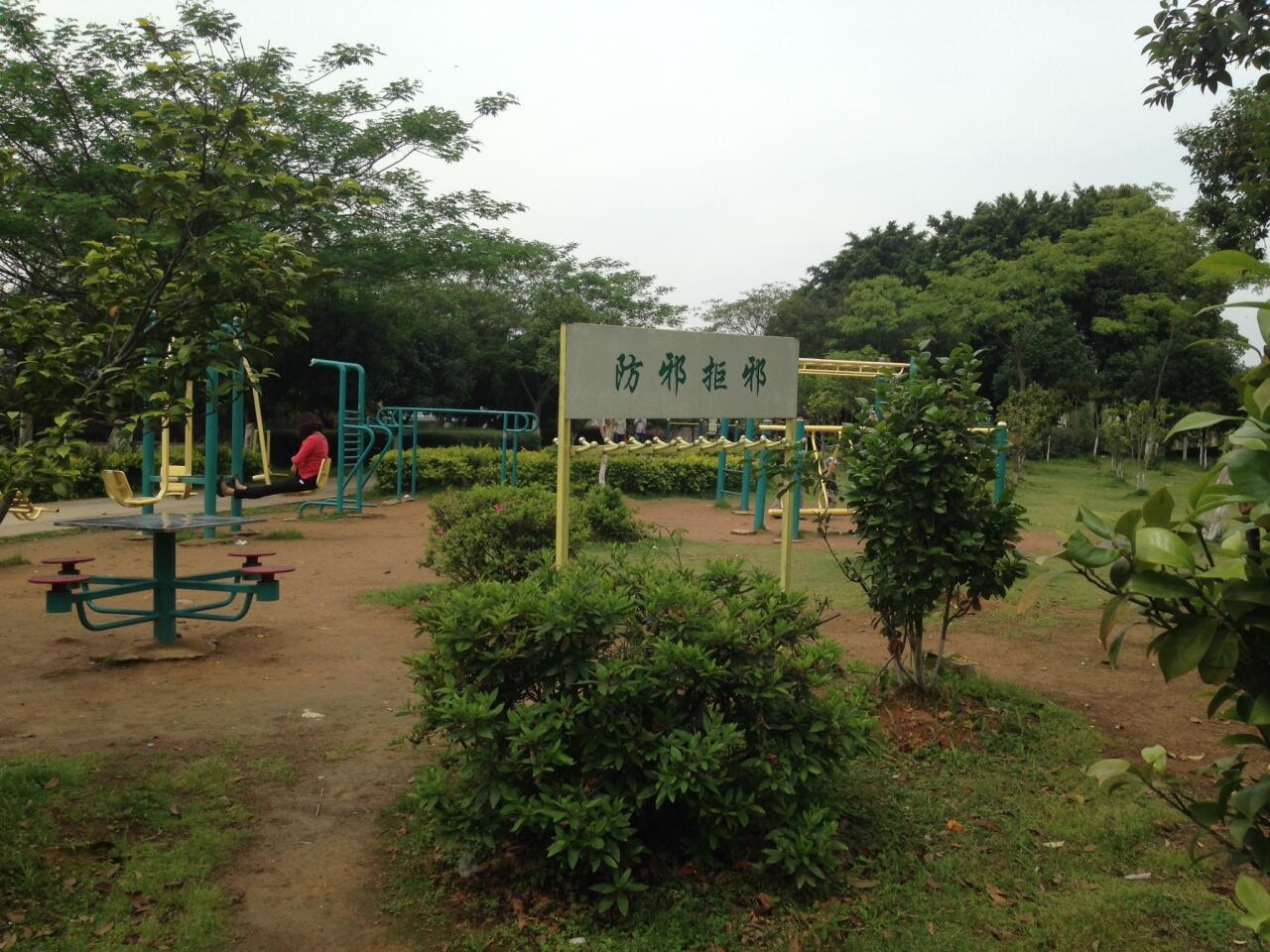
A sign near the exercise equipment at the Anti-Cult Theme Park in Wenzhou, China, says, “Prevent cults; resist cults.” (Julie Makinen / Los Angeles Times)
Admission is free, and despite the name, don’t expect any roller coasters or merry-go-rounds. This is a space for exercise and indoctrination.
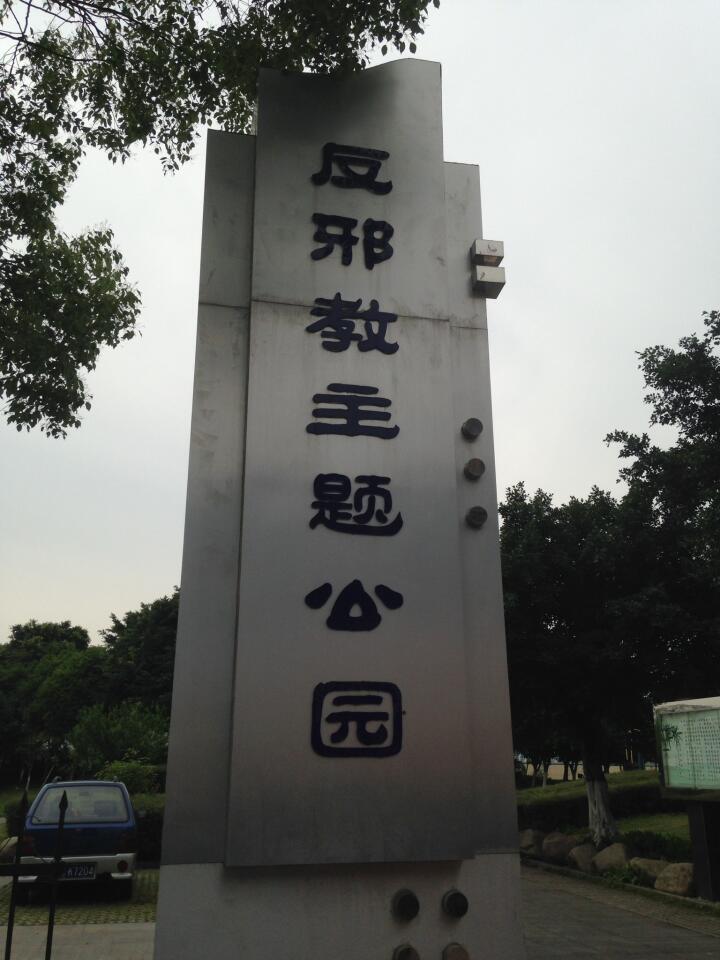
A sign welcomes visitors to the Anti-Cult Theme Park in Wenzhou, China. (Julie Makinen / Los Angeles Times)
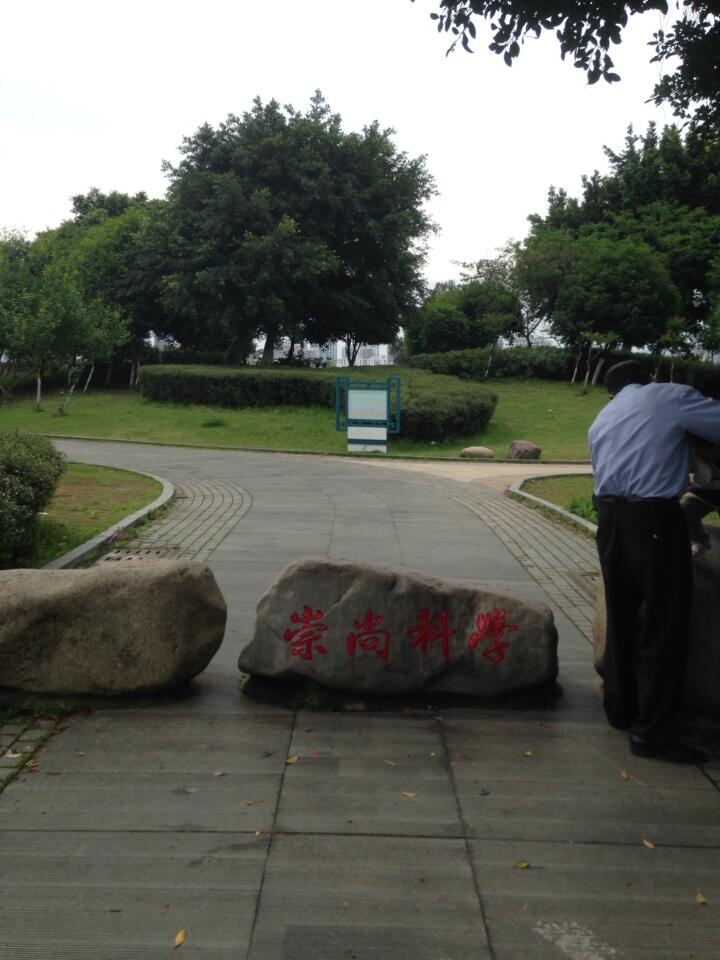
At the entrance to the park, red characters on stones urge visitors to “worship science.” (Julie Makinen / Los Angeles Times)
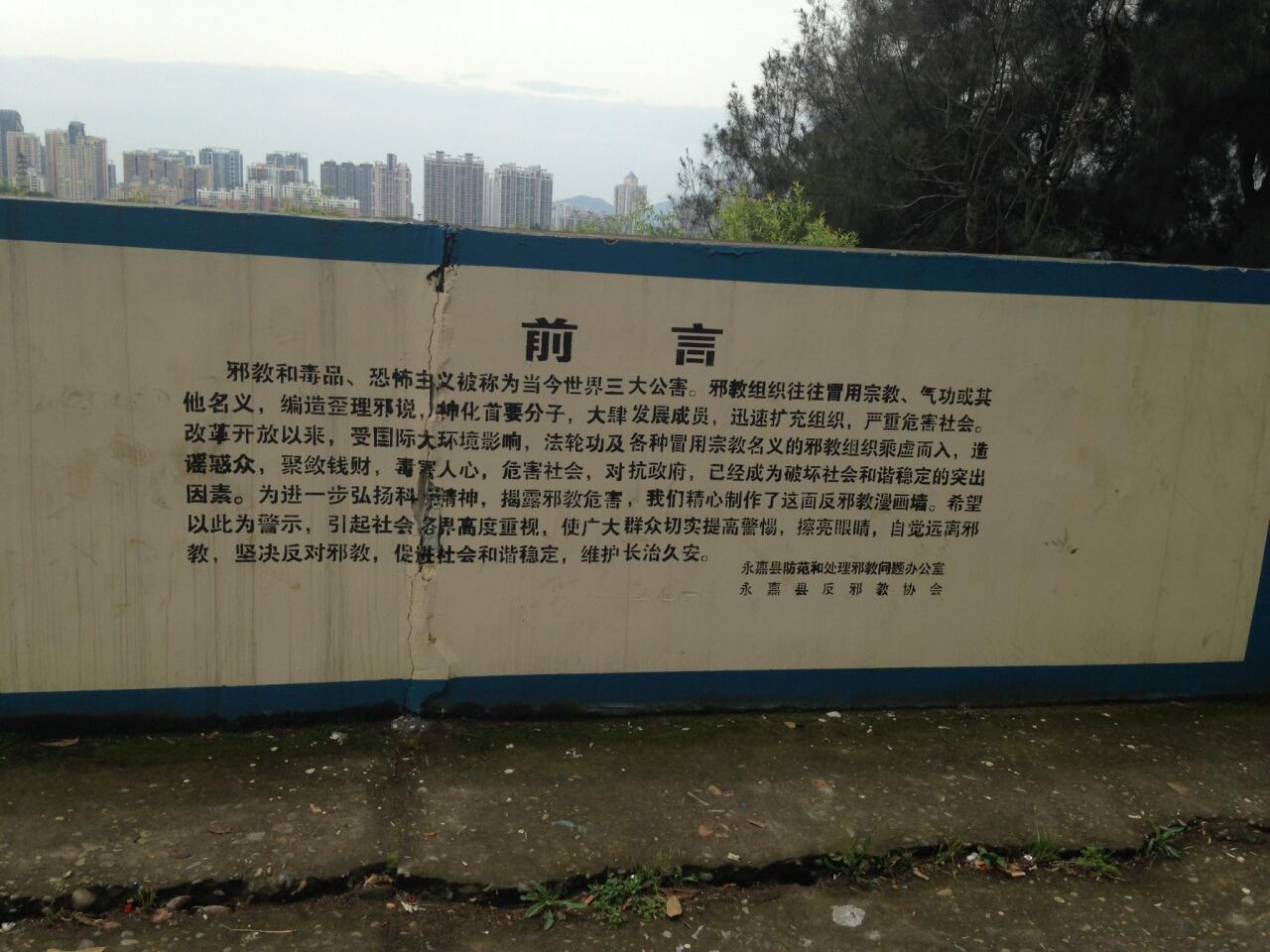
A preface to a riverside mural says in part, “Cults, drugs and terrorism are the three largest threats in the world today.” (Julie Makinen / Los Angeles Times)
Advertisement
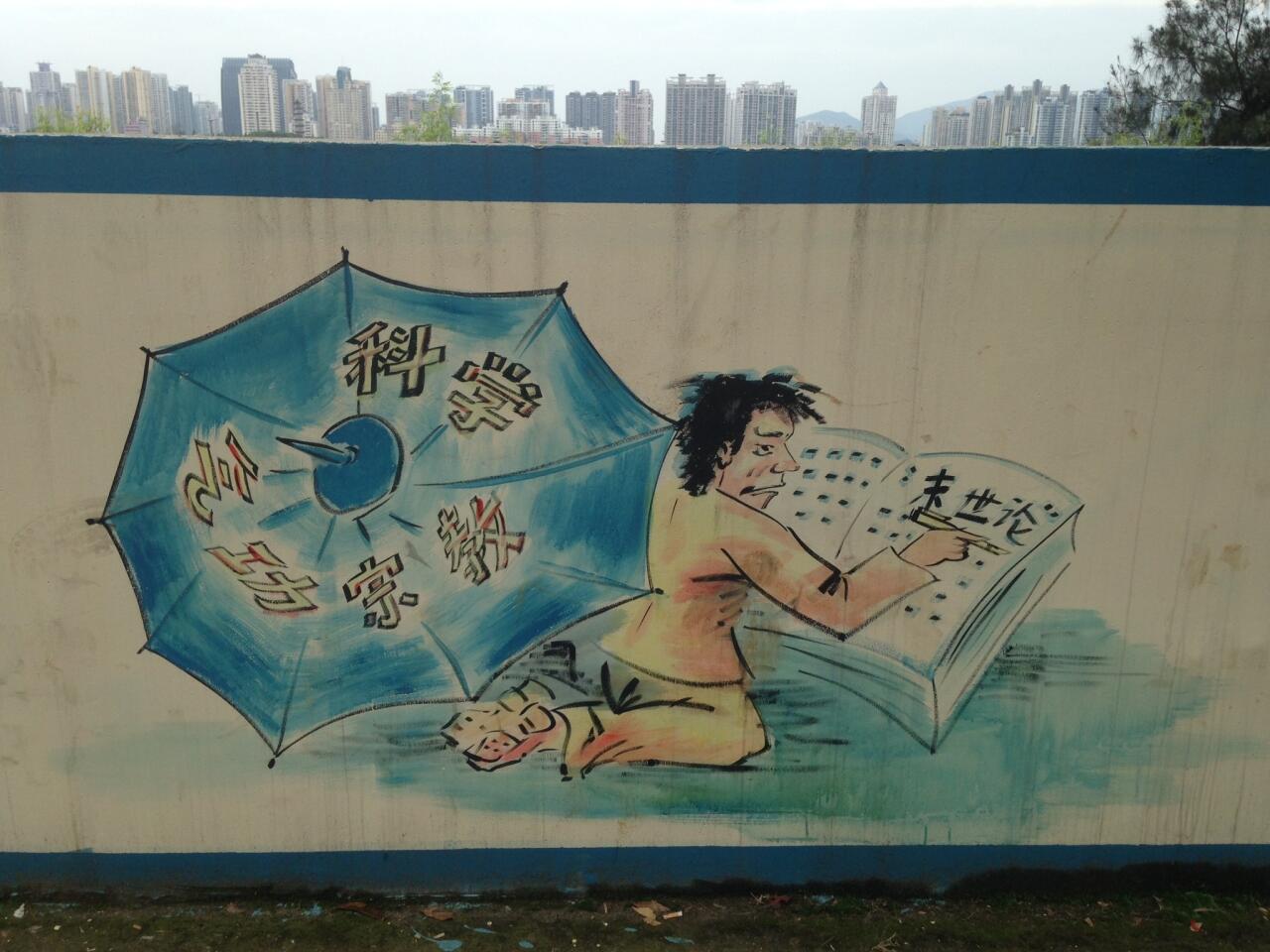
The caption with this illustration warns, “Cult organizations have always borrowed the name of religion or martial arts, and always try to promote the theory of apocalypse, using the excuse that the world will end soon to create fear in society.” (Julie Makinen / Los Angeles Times)
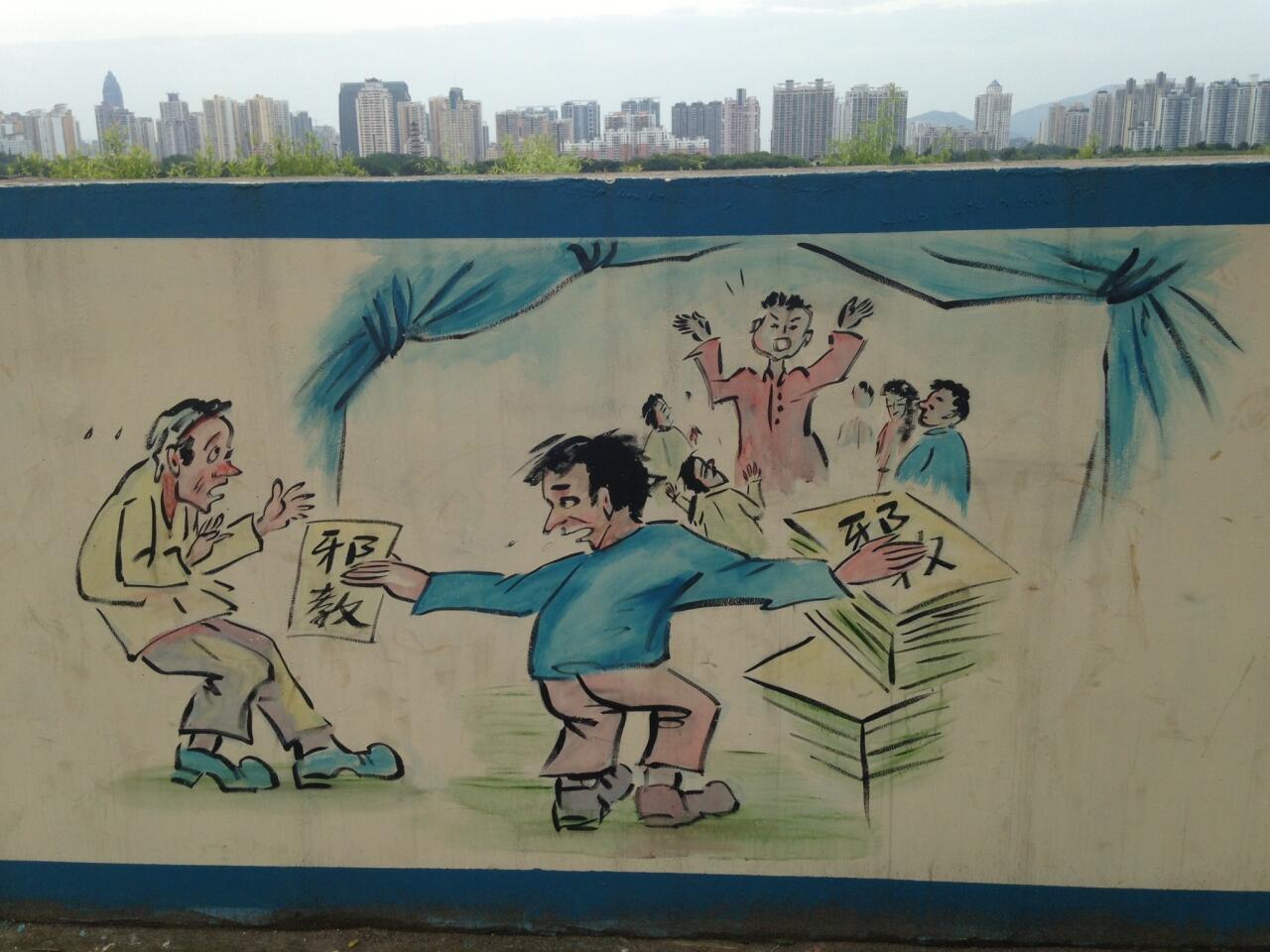
“Cults portray their leader as god and establish a large organization; they get their wealth illegally,” the caption with this illustration warns. (Julie Makinen / Los Angeles Times)
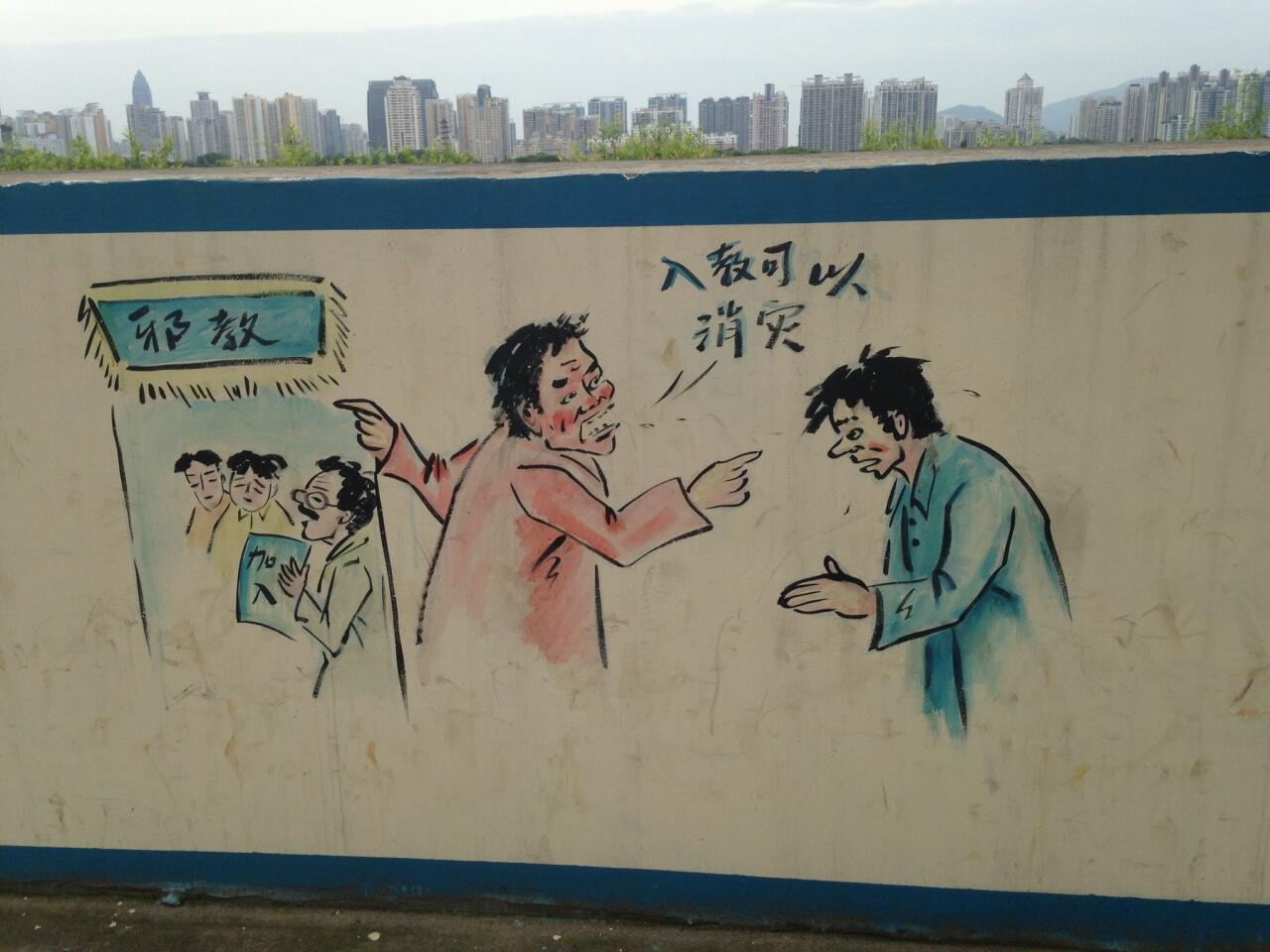
“Cult organizations,” the caption to this illustration says, “always try to get you to join by using slogans promising they can help you avoid disasters and strengthen you.” (Julie Makinen / Los Angeles Times)
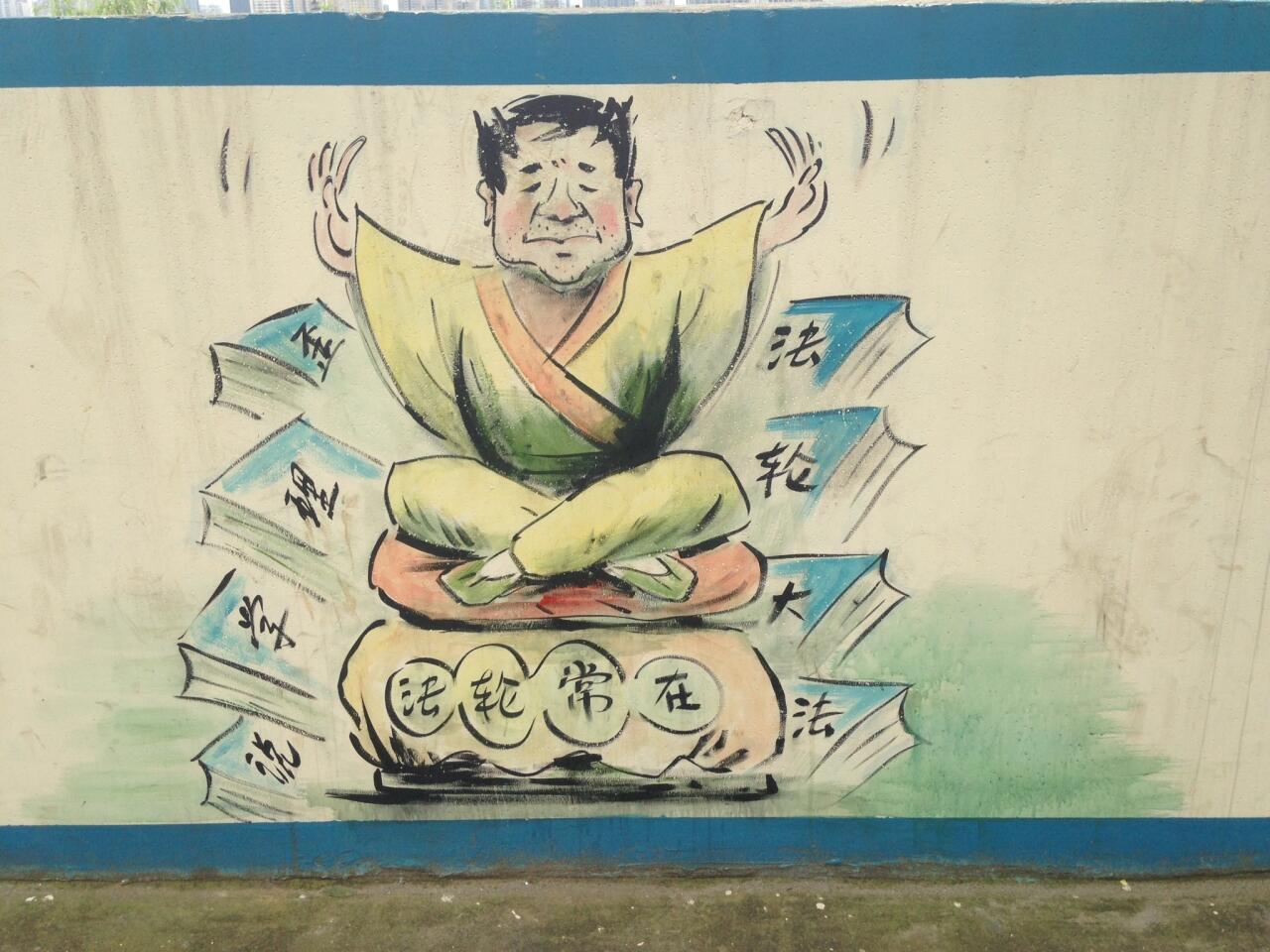
“The leader of Falun Gong, Li Hongzhi, has claimed he’s the largest Buddha in the universe,” reads the text accompanying this illustration. “He’s borrowed many words from Buddhism, Taoism and Chinese traditional culture to deceive others and fool ordinary people.” (Julie Makinen / Los Angeles Times)
Advertisement
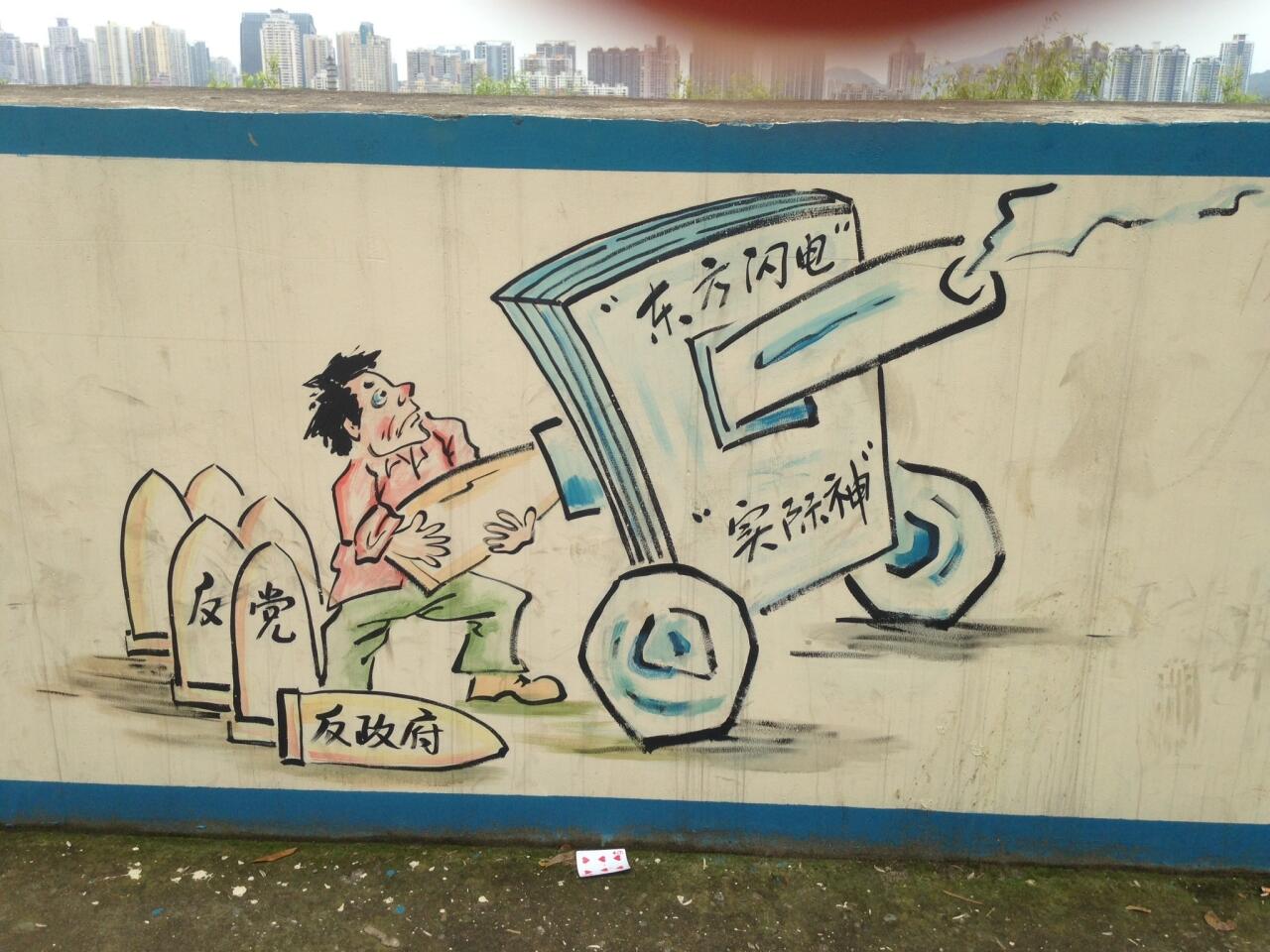
This illustration denounces a sect known as Almighty God, which says a mainland woman is the second coming of Jesus Christ. The caption to this illustration says in part, “Almightly God - they evolved in the 1990s under the name of Christianity. They are actually an illegal organization, an evil cult.” (Julie Makinen / Los Angeles Times)
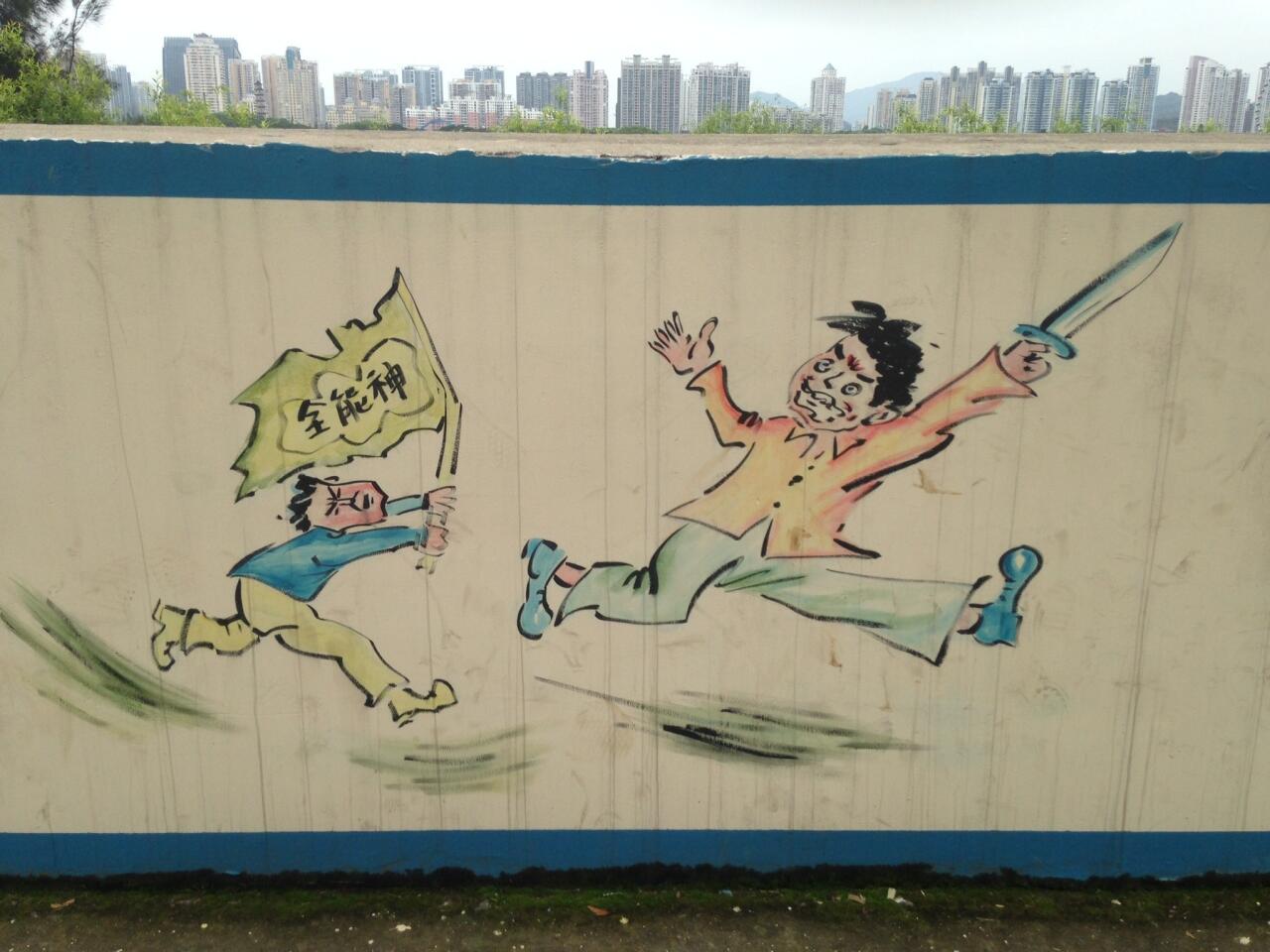
“Almighty God has announced they are starting a final battle against the big red dragon,” the text with this picture says. (Julie Makinen / Los Angeles Times)
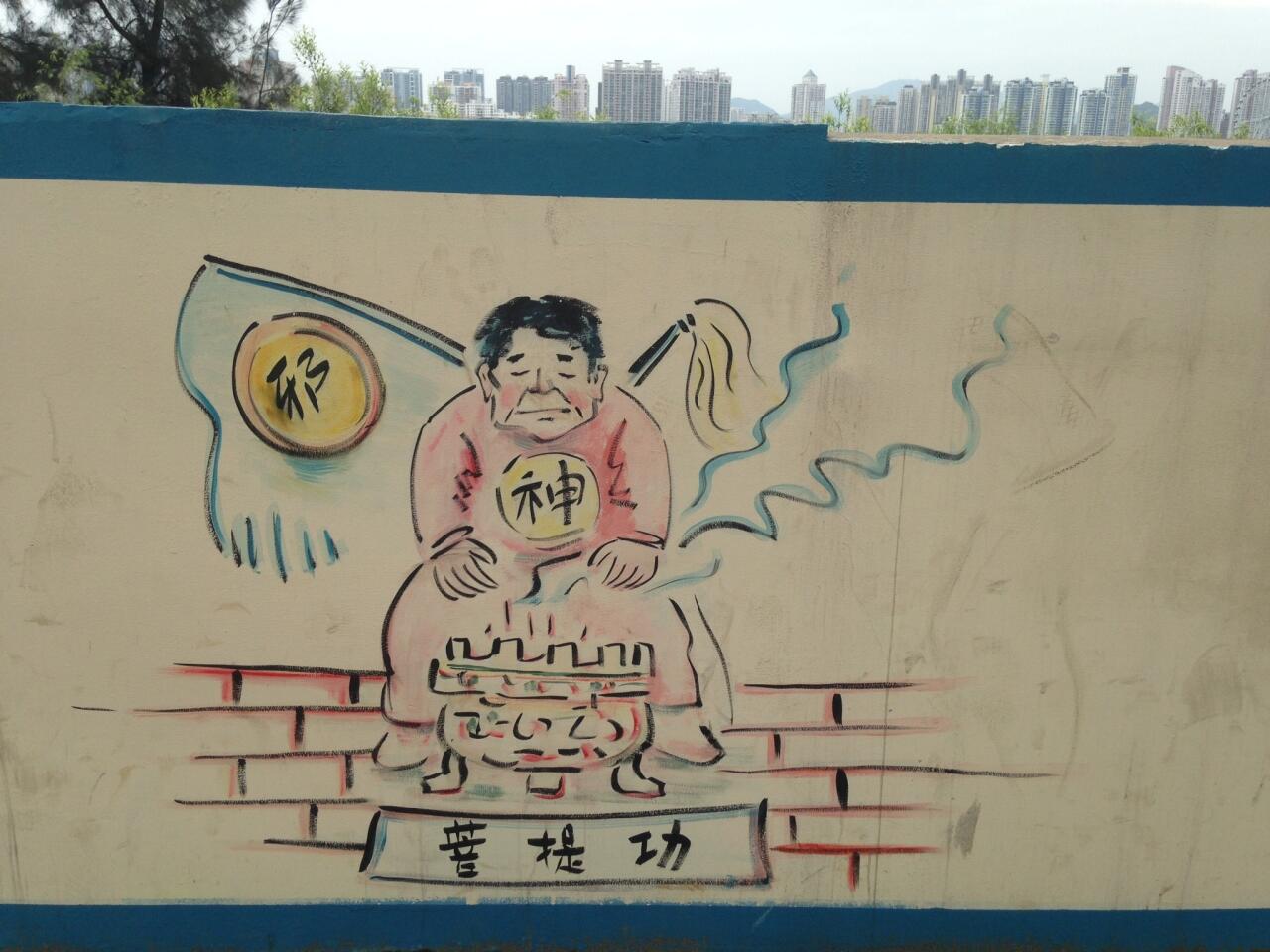
Puti Gong is another group singled out as a cult with foreign ties. “It was established in 1991 by a person from Hebei province named Di Yuming,” says the text with this drawing. (Julie Makinen / Los Angeles Times)
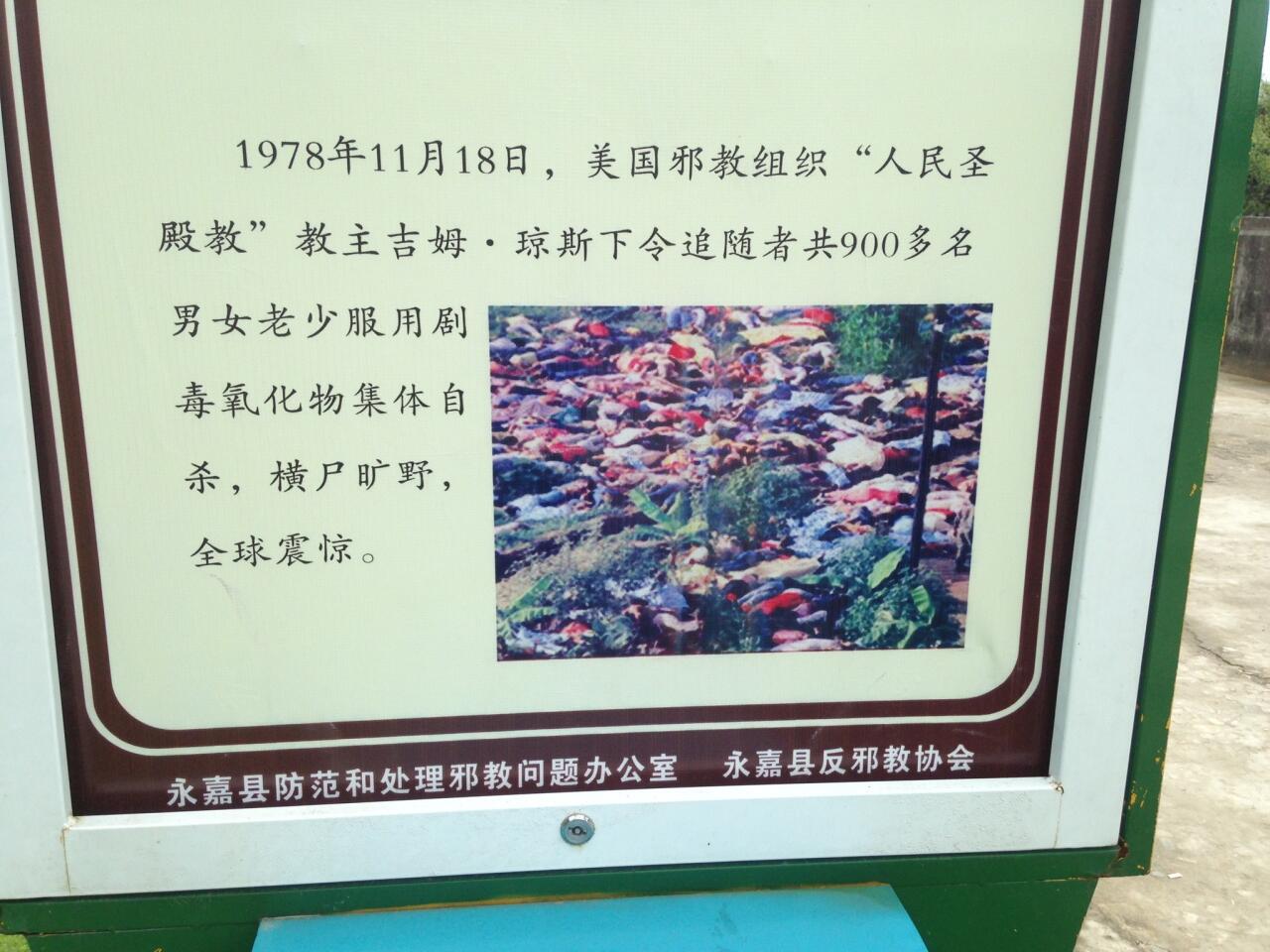
A small poster informs visitors to Jonestown, Guyana, “On Nov. 18, 1978, the head of the American evil cult People’s Temple, Jim Jones, led more than 900 of his followers, including men, women, the elderly and the young, to ingest poisoned materials and they committed suicide together. The bodies were everywhere; this shocked the world.” (Julie Makinen / Los Angeles Times)
Advertisement
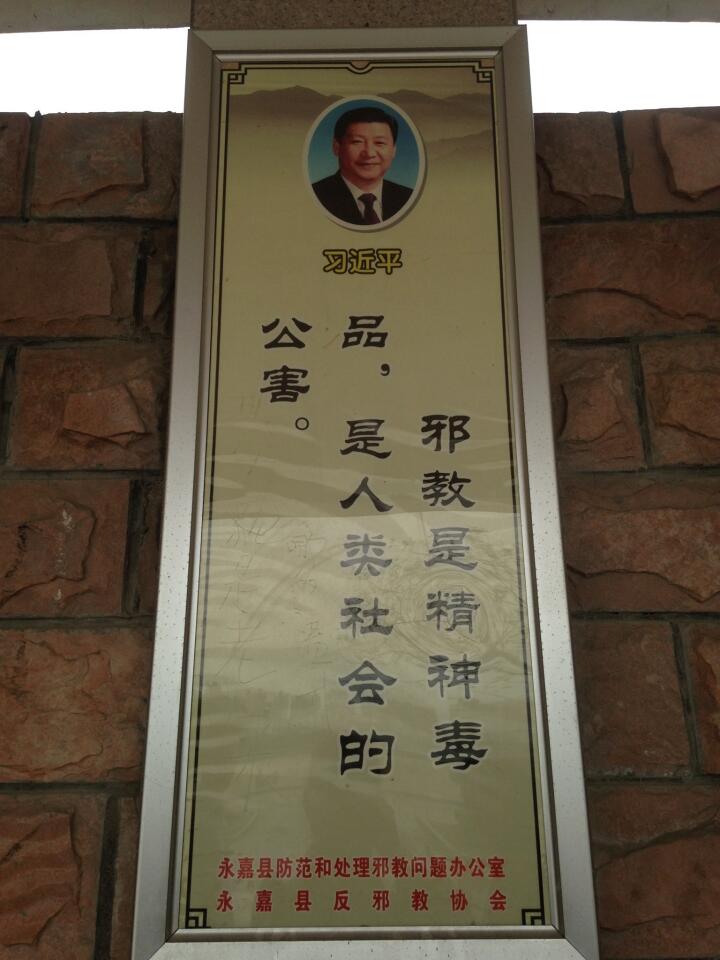
A pavilion with placards highlights quotes on religion and cults from famous people. One attributed to Chinese President Xi Jinping says: “Cults are spiritual poison; they are the pollution of human society.” (Julie Makinen / Los Angeles Times)
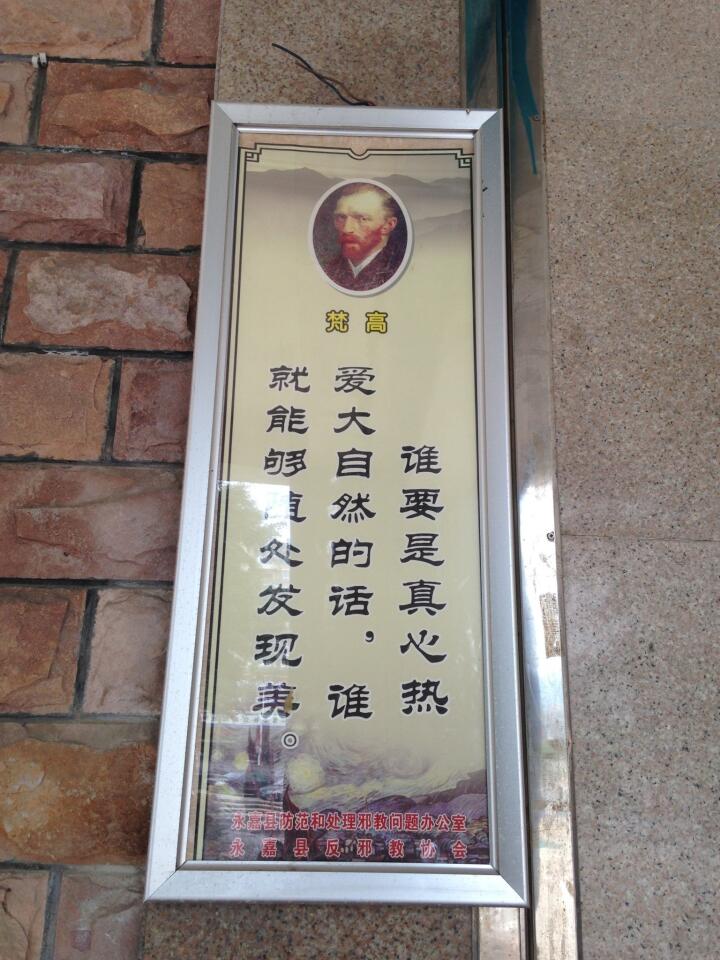
A quote attributed to Vincent van Gogh reads, “Whoever is truly in love with nature will be able to find beauty everywhere.” (Julie Makinen / Los Angeles Times)







